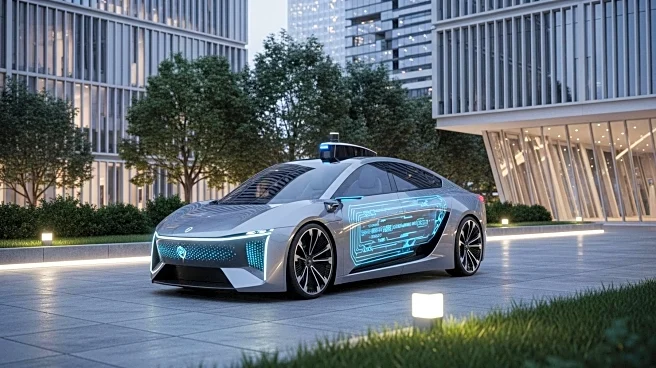What is the story about?
What's Happening?
Nissan Motor Co. has announced plans to test a self-driving transportation service in Yokohama, Japan, starting November 27, 2025. The pilot program will run for two months and involve approximately 300 pre-registered users in the Minatomirai and Kannai districts. The service will utilize five autonomous vehicles based on the Serena minivan, allowing users to hail rides from 26 designated pickup locations via a special app. While drivers will be present for emergencies, they will not actively control the vehicles, which will be monitored from a control room.
Why It's Important?
Nissan's pilot program represents a significant step towards the commercialization of autonomous mobility services, which could revolutionize urban transportation. By testing self-driving technology in real-world conditions, Nissan aims to refine its systems and address potential challenges before a full-scale launch. The initiative underscores the company's commitment to innovation and its efforts to lead in the autonomous vehicle sector. Successful implementation could enhance Nissan's competitive position and contribute to the broader adoption of self-driving technology, potentially reducing traffic congestion and improving road safety.
What's Next?
Following the pilot program, Nissan plans to launch a fully autonomous mobility service by 2027 or later. The company will likely analyze data from the pilot to optimize vehicle performance and user experience. Future developments may include expanding the service to other regions and integrating advanced technologies to enhance vehicle autonomy. Stakeholders, including local governments and transportation authorities, may play a role in shaping regulations and infrastructure to support autonomous mobility.
Beyond the Headlines
The introduction of self-driving services raises ethical and legal considerations, such as liability in the event of accidents and the impact on employment for traditional drivers. Additionally, the shift towards autonomous vehicles may influence urban planning and public transportation strategies, prompting cities to adapt to new mobility paradigms.
















